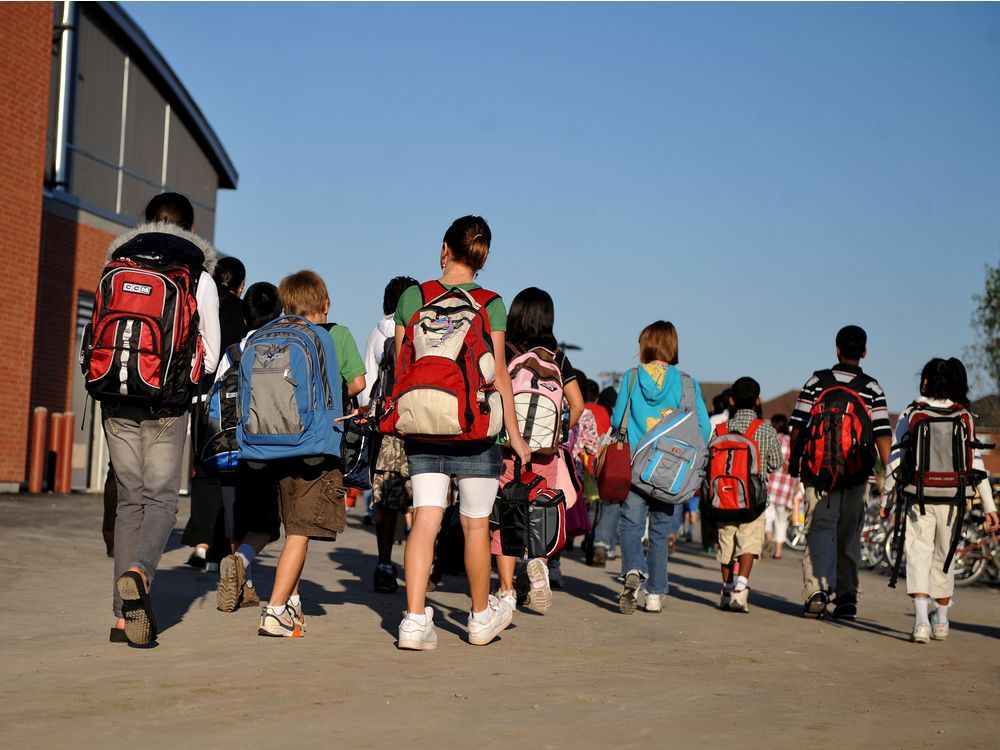amidst all our concerns about the physical difficulties of keeping our children safe from covid-19, when they go back to child care and school (two meter distancing, masks, disinfecting toys), we’ve forgotten about the children themselves.
a letter endorsed by 1000 quebec physicians hints at how the children may react to this new normal, but “significant repercussions to the health and well-being of many children” doesn’t capture what children may actually be feeling as they rejoin the world. of course, they will be happy to see their friends, but what is going on underneath? how have they been affected by months of lockdown with only their stressed and frightened families for company? by the illness or death of family members? by unemployment, food insecurity, or eviction? by protests against racism and police violence?
according to heather c. hill of the harvard graduate school of education, it is likely that many will be suffering from trauma, a psychologically distressing event that creates intense fear and helplessness and undermines their sense of safety. in children, trauma is an important risk factor for challenging behaviour.children who are already living with “adverse childhood events” or aces — such as poverty, neglect, abuse, domestic or neighbourhood violence, or an addicted or mentally ill parent — are particularly susceptible to trauma’s effects, says hill. and sheltering at home has exacerbated matters, putting even stable middle-class children on edge, like three-year-old dylan, a usually outgoing and friendly child who hid behind his mother when a smiling stranger approached, or amy, age 12, who asked her dad if it was safe to touch the grass.
what is the effect of trauma on children?
if it’s difficult for adults to process the events of the last few months and the uncertainty of the future, imagine what it’s like for young children who don’t understand why we’re upset or why everything has changed. as a result, cautions barbara sorrels in her book
reaching and teaching children exposed to trauma, there are some common effects of trauma that may arise. children may fear going to child care or school and suffer from separation anxiety — made worse by new restrictions that keep adults outside. behaviour may regress, causing toileting accidents, eating disturbances, trouble sleeping, resisting bedtime, or desire for a bottle. infants may be difficult to comfort and fight against being held, while toddlers may cling to their parents, throw temper tantrums, and behave aggressively. or withdraw. preschoolers may be hypervigilant and attuned to invisible threats, misinterpreting facial expressions, body language, sounds, and movements. they also may have trouble controlling strong emotions and be prone to crying or defiant or aggressive behaviour. and elementary school children may not function well in the classroom, having trouble learning, paying attention, managing impulses and behaviour, and forming relationships. in addition, language development and play skills may fall behind.these behaviours are the cries for help of scared, anxious children in the face of a traumatic experience.
what can caregivers do to ease trauma?
give them the best possible protection against trauma’s effects, namely the comfort and support of a calm, loving, responsive caregiver,
says dr. jack shonkoff, director of the center on the developing child at harvard university. he calls this the ‘serve and return interaction’ between children and their caregivers.first of all, because sending children back to school and child care will be hard, we must be ready ourselves — and feel sure that we’re doing the right thing. difficult as it may be, we have to believe the expert’s advice that it’s safe and important for their healthy development and that they will enjoy and benefit from it, despite some rough days at the beginning.at home, we must remember that we on the frontline are responsible for supporting our children through whatever difficulties they encounter. it is incumbent on us to stay calm and present, listen to their concerns, validate their feelings, and role model how to handle our own fears and frustrations, advises dr. joshua c. sparrow of the boston-based brazelton touchpoints center.in other words, says shonkoff, we must recognize our own stress and take care of ourselves using whatever tools are available — deep breathing, exercise, good food, enough sleep, mindfulness, yoga, turning off the news when children are around and instead spending time with family and friends, whether virtually or at a distance. in sparrow’s words, “our kids want to know we’re going to be okay so we can take care of them.”it’s more important to focus on our relationship with our children than on their behaviour. behavioural issues are to be expected, and they call for a gentle response. a regular schedule is another useful tool because routines and predictability allow children to feel safe — they like to know what comes next. establishing a ritual for leaving and picking them up at school will help.play is also important — “probably the most important thing,” says shonkoff. it’s the way children process their world, solve their problems, and cope with stress. he counsels us to follow their lead, play with them as much as possible, and let them play alone as well. themes of illness, isolation, and doctoring shouldn’t surprise us.we must strive to keep our expectations reasonable — for ourselves, for our partners, and most of all for our children.like it or not, we are all in this together.
barbara kaiser, who for decades directed an early childhood center and after-school program in montreal, now travels the world training educators, centers, and schools on addressing challenging behaviour in children.judy sklar rasminsky is a montreal freelance writer specializing in education. rasminsky and kaiser are the authors of challenging behavior in young children, now in its 3rd edition (pearson education, 2017).
 4 minute read
4 minute read









